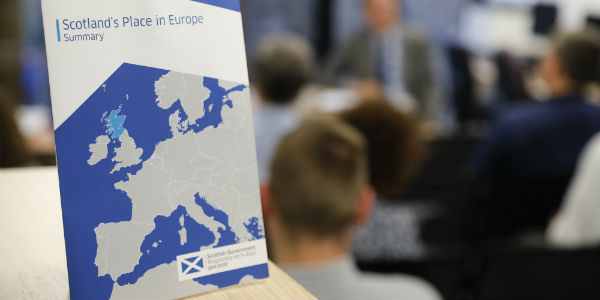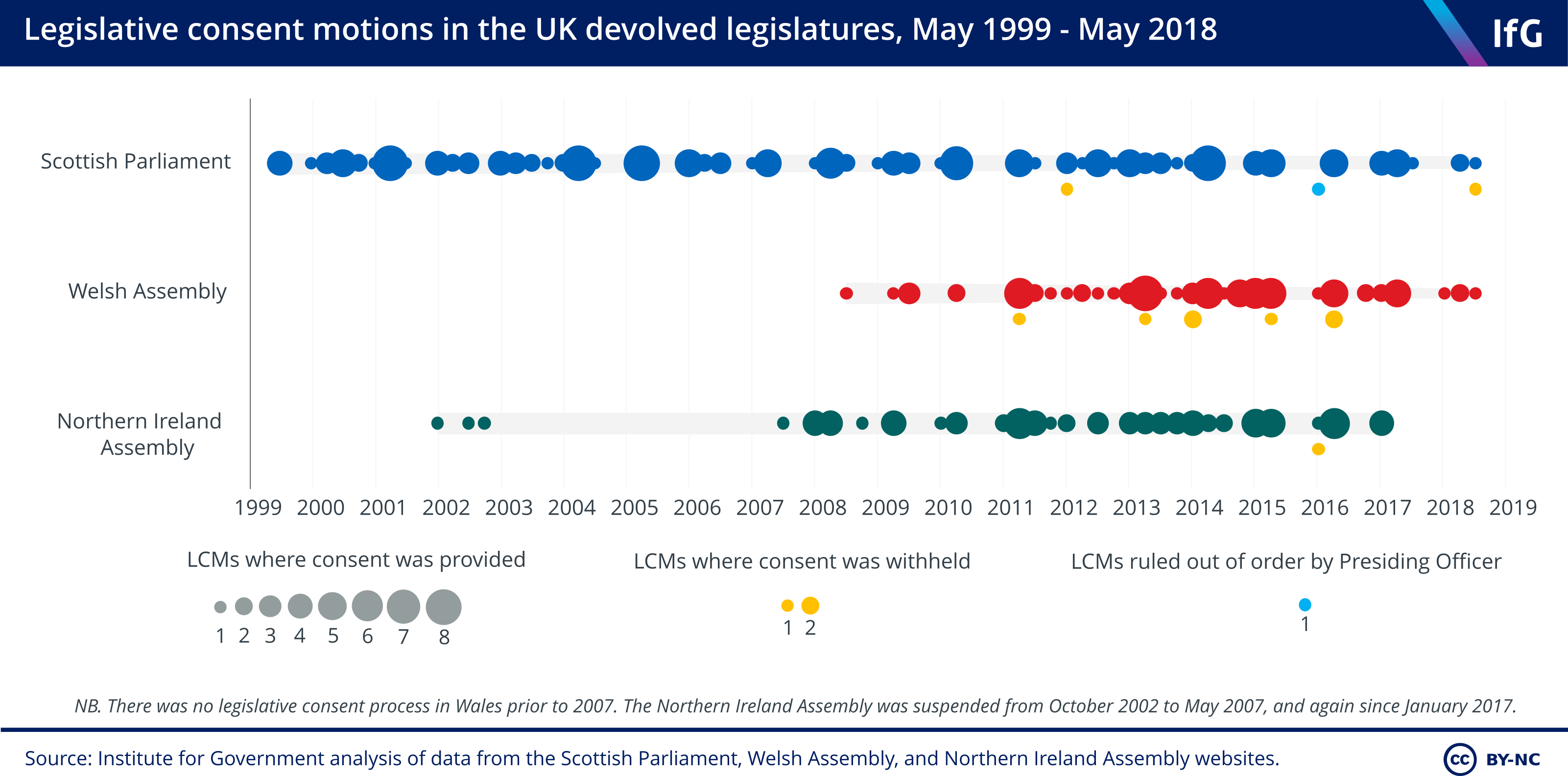The Scottish Parliament has rejected the Brexit bill – are we heading for a second independence referendum?
The Scottish Parliament has denied consent to the EU Withdrawal Bill. Akash Paun argues that the Prime Minister now faces an unpalatable choice: concede defeat or help the SNP make the case for a second independence referendum.

Picture: Scottish government, via a (CC BY-NC 2.0) licence
And lo it came to pass. After nearly two years of wrangling over the impact of Brexit on devolution, the Scottish Parliament has voted by 93 to 30 to withhold ‘legislative consent’ for the EU Withdrawal Bill. The bill amends the powers of the Scottish Parliament and Government and should therefore ‘not normally’ be passed without devolved agreement (under the Sewel Convention).
This is a major constitutional moment – since 1999 MSPs have granted consent to Westminster legislation 171 times. Just once have they said no. On that occasion, relating to the 2011 Welfare Reform Bill, the British Government amended its plans, following which the Scottish Parliament reconsidered the matter and granted consent to the revised legislation.

A UK-Scottish Brexit deal is now hard to imagine – so Westminster may legislate without consent
The current impasse could yet be overcome in a similar way. The House of Lords has sent the bill back to the Commons, so MPs still have time to amend the bill further if agreement is reached between the two governments. But that is a big if. The British government has made significant concessions already, sufficient to gain the consent of the Welsh Assembly. But in the case of Scotland, the two sides remain at odds on a fundamental point of principle.
The UK government position is that Westminster needs the power to impose (temporary) restrictions on devolved power in certain areas governed by EU law, such as agriculture, fisheries, food standards and animal welfare. This, it says, is necessary to ensure legal certainty until the UK decides what to put in place of EU frameworks. The Scottish government considers this an unwarranted incursion into Scotland’s autonomy.
Speaking in London on 14 May,Scotland’s First Minister Nicola Sturgeon made plain that this is a red line that no ‘self-respecting First Minister of the Scottish Parliament’ (at 58min) could be expected to cross. Her counter-proposals are that the offending clause of the Withdrawal Bill be dropped altogether, or that any constraints on devolution are imposed only with the express agreement of Holyrood. In other words, there should be a legal veto power, applicable on a case by case basis, not simply a convention of seeking agreement.
The SNP position is strengthened by the support it received in the vote on 15 May in the Scottish Parliament from the Scottish Labour, Liberal Democrat and Green parties. Only the Scottish Conservatives voted to back the Withdrawal Bill. In this context, might the Prime Minister simply cut her losses and drop the offending provisions?
This must be tempting – the government’s Brexit strategy is in danger of falling apart, and conceding on the devolution question would at least bring peace on one front. But Whitehall holds genuine concerns about the economic implications of Scotland creating its own regulatory framework immediately after exit day. So the government might resolve to push through its legislation without consent, for the first time in the history of devolution.
The Prime Minister will meanwhile also hope that the Supreme Court strikes down Scotland’s rival EU Continuity Bill, which UK ministers believe may fall outside of Scotland’s devolved competence.
The UK-Scottish dispute may pave the way for a second independence referendum
The risk for the Prime Minister is that to legislate without consent would make the SNP’s argument for it. Nicola Sturgeon has asserted that if Westminster were to ‘carry on regardless’ this would ‘demonstrate that we were right’ not to ‘take on trust’ that UK ministers would not misuse the powers in the Withdrawal Bill to rewrite the law in devolved areas.
That in turn will be used to bolster the case for a second independence referendum, which for the SNP remains a matter of ‘when’ not ‘if’. Sturgeon will outline her approach on the next steps towards this goal in the autumn. Prior to that, her party will set out its thinking on crucial economic questions such as what currency an independent Scotland would adopt.
Nicola Sturgeon last pressed the #indyref2 button in a speech in March 2017, but Theresa May rejected the demand for a second vote on the grounds that ‘now is not the time’. The SNP’s poor election performance in June 2017 pushed the issue further onto the backburner. But as the contours of the future UK-EU relationship emerge slowly from the fog over the coming months, the First Minister will be able to argue more persuasively that the time has now arrived.
It would be a gamble, no doubt. The polls do not indicate a pro-independence surge, but after the shock of 2016 only a fool would predict the outcome with confidence. Westminster could in principle refuse to allow another referendum, but emulating Madrid’s handling of Catalonia would surely not be the right course of action. Westminster conceded in 2014 (if not 1999) that Scotland has the right to self-determination, just as the Good Friday Agreement allows for Irish reunification with sufficient support in both parts of Ireland. These constitutional genies cannot be put back into the bottle.
The Prime Minister therefore faces a choice. Concede defeat on the Withdrawal Bill, at the expense of losing some control over post-Brexit regulatory arrangements. Or hold course on Brexit, and prepare for a bigger battle over the future of the British Union.
This post represents the views of the author, and not those of Democratic Audit. It first appeared on the Institute for Government blog.
About the author
 Akash Paun is a Senior Fellow at the Institute for Government. Akash has worked at the Institute since 2008, having previously worked as a researcher at the Constitution Unit, UCL. He has a broad interest in constitutional change and the comparative study of political systems.
Akash Paun is a Senior Fellow at the Institute for Government. Akash has worked at the Institute since 2008, having previously worked as a researcher at the Constitution Unit, UCL. He has a broad interest in constitutional change and the comparative study of political systems.





 Democratic Audit's core funding is provided by the Joseph Rowntree Charitable Trust. Additional funding is provided by the London School of Economics.
Democratic Audit's core funding is provided by the Joseph Rowntree Charitable Trust. Additional funding is provided by the London School of Economics.
[…] Read Full Article: The Scottish Parliament has rejected the Brexit bill – are we heading for a second independence re… […]